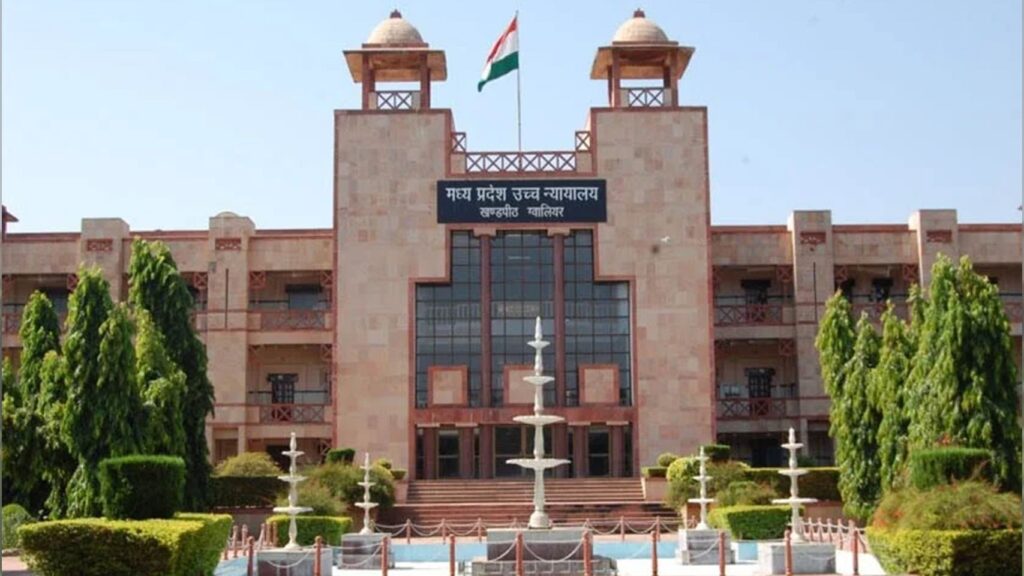Madhya Pradesh High Court Reduces Death Sentence for Man Found Guilty of Rape and Murder of Young Girl.

The Madhya Pradesh High Court reduced the death sentence given to a man convicted of raping and murdering a young girl. The Jabalpur Bench reviewed the case that stemmed from a Trial Court’s decision, where the man was found guilty under Sections 302 and 376(a)(b) of the Indian Penal Code (IPC) and sentenced to death. Justices Vivek Agarwal and Devnarayanan Mishra noted that the appellant had no prior criminal record, which the Trial Court failed to consider. The Trial Court had stated that rising offenses against minors reflect a disturbed mindset, necessitating strict punishment to protect children’s futures. Public Prosecutor Aditya Narayan Gupta represented the Petitioner, while Senior Advocate Uma Kant Sharma represented the Respondent.
Since the death penalty was imposed, the Trial Court referred the case to the High Court under Section 336 of the Criminal Procedure Code (CrPC). The convicted man also filed an appeal under Section 374(2) of the CrPC, arguing that his conviction was based solely on circumstantial evidence and that there were no witnesses to confirm he was with the victim last. According to the prosecution, a missing person report was filed in 2019 when the victim left home to buy items from a local shop but never returned.
The victim was a young girl. As a result, her father went to the store, where the shopkeeper said that the girl had taken an item just a few minutes earlier. They searched her friends’ houses but found nothing. Then, the father went to the nearby stream and discovered his daughter dead near it. Later, it was found that she had been raped and murdered. Her father accused the suspect of assaulting and killing her. After hearing both sides, the High Court stated that the conviction of the accused under various sections of the IPC was justified. Regarding the sentence, the Supreme Court noted that the “rarest of rare” doctrine has two key points: the case must fit this category, and life imprisonment must not be a viable option.
The Court explained that a life sentence allows for deterrence, rehabilitation, and retribution to some extent, while the death penalty does not. The death penalty completely denies any chance for the convict to reform and ends their life, which is a significant difference between the two punishments. Therefore, it is crucial to carefully consider this before deciding on the death penalty. Additionally, to meet the second requirement of the “rarest of rare” doctrine, the court must provide clear reasons why the convict is unsuitable for any rehabilitation programs.
The Court noted that the accused claimed there was no motive to kill the child and that the choking was accidental, leading to the child’s death. However, this argument was not relevant, especially since the victim was under 12 years old. The Court stated that her privacy was severely violated, and since she was known to the accused, her life was taken. The method of her death was not important. Referring to the Supreme Court’s ruling in Pappu, the Court decided to maintain the sentence under various sections of the IPC. It emphasized that the accused should remain in custody for life instead of a shorter term, as the crime under the Protection of Children from Sexual Offences Act, 2012, warrants a minimum of 20 years, potentially extending to life imprisonment.
As a result, the Court upheld the conviction of the accused but changed the death sentence to life imprisonment for the rest of his natural life. The High Court partially accepted the Criminal Appeal and modified the death penalty accordingly.
Cause Title: In Reference v. Vishnu Bhamore (Neutral Citation: 2024:MPHC-JBP:56065)
Appearance:
Petitioner: Public Prosecutor Aditya Narayan Gupta
Respondent: Senior Advocate Uma Kant Sharma and Advocate P.N. Tiwari.







